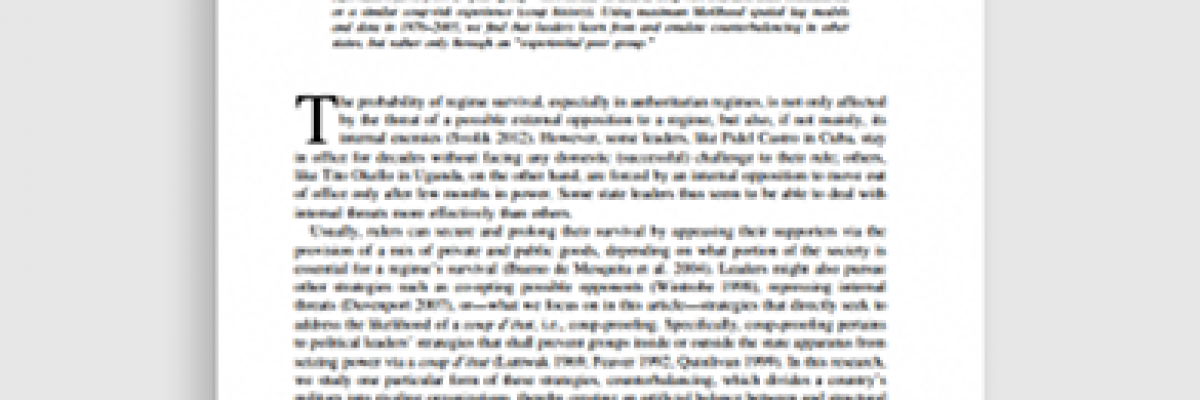
Previous studies identified several domestic factors that may influence a country’s level of structural coup-proofing, i.e., counterbalancing strategies that shall prevent internal groups from seizing power via acoup d’état. We suggest that a country’s level of counterbalancing is also affected by such policies in what we term countries’ “peer groups.” When deciding the appropriate level of counterbalancing, rulers may be affected by external information flows from a “peer group” with similar structural coup-risk characteristics (institutions) or a similar coup-risk experience (coup history). Using maximum likelihood spatial lag models and data in 1976–2005, we find that leaders learn from and emulate counterbalancing in other states, but rather only through an “experiential peer group.”

